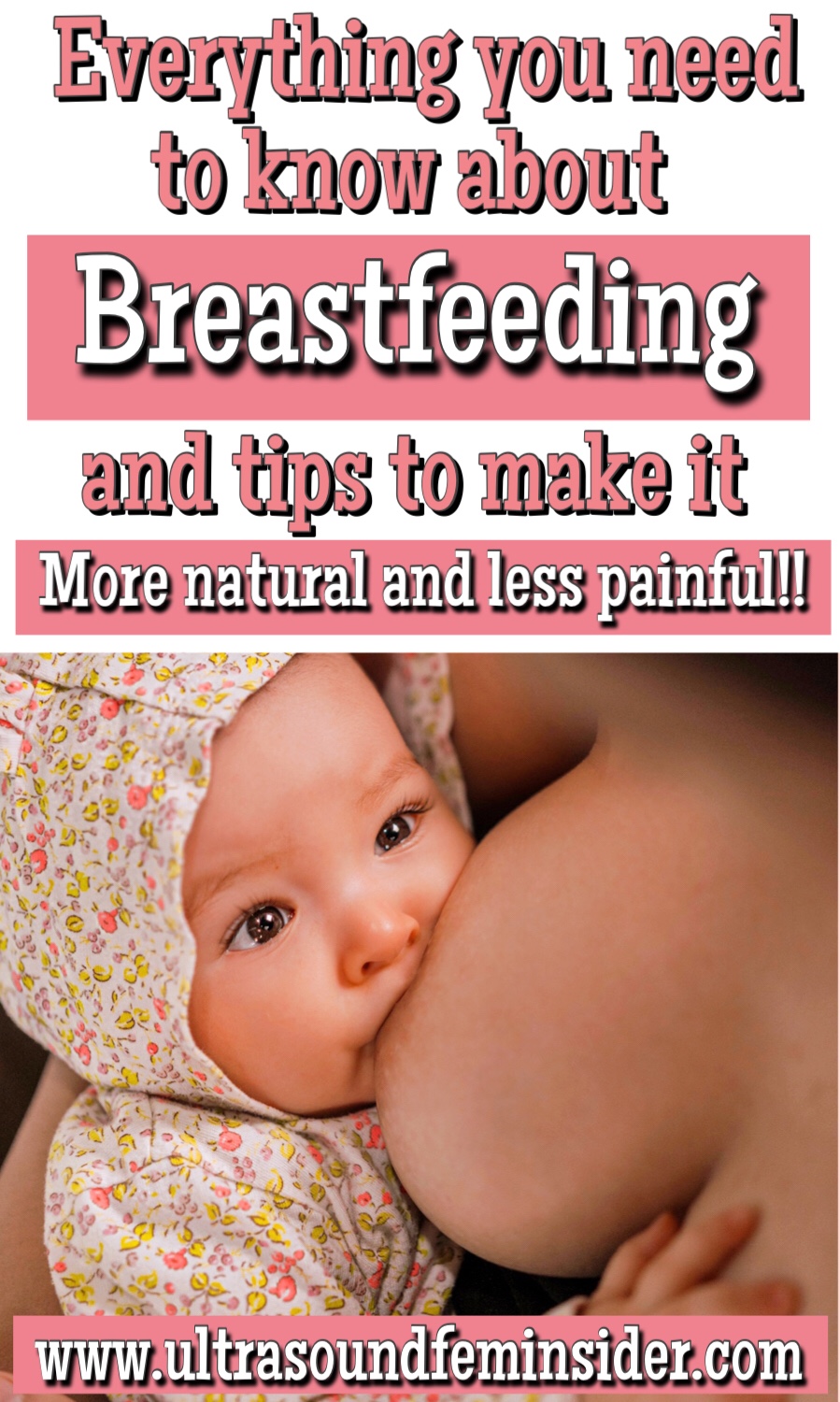Regardless that breastfeeding is a very natural thing for women, for some of us doesn’t feel so natural. The pain, the hassles and the schedule/times can make the breastfeeding experience a very difficult one, but there are small things you can do to help you feel better and connect with your baby. In this article you’ll find important information about breastfeeding, and useful tips that will allow you to have a better experience while breastfeeding your baby. Ready? Let’s begin.
What happens when you Breastfeed. Benefits of breastfeeding.
Many mothers feel joy from the physical and emotional communion they experience with their child while nursing. These feelings are augmented by the release of hormones, such as:
- Prolactin: Produces a peaceful, nurturing sensation that allows you to relax and focus on your child.
- Oxytocin: Promotes a strong sense of love and attachment between the two of you.
Other Health Benefits of breastfeeding for moms:
Breastfeeding provides health benefits for mothers beyond emotional satisfaction.
Mothers who breastfeed recover from childbirth more quickly and easily. The hormone oxytocin, released during breastfeeding, acts to return the uterus to its regular size more quickly and can reduce postpartum abnormal bleeding.
Studies show that women who have breastfed experience reduced rates of breast and ovarian cancer later in life. Some studies have also found that breastfeeding may reduce the risk of developing type 2 diabetes, rheumatoid arthritis, and cardiovascular disease, including high blood pressure and high cholesterol. Exclusive breastfeeding delays the return of the mother’s menstrual period, which can act as natural contraception in some women as well.
Why Breast Milk Provides Ideal and complete Nutrition for Babies?
Breast milk contains everything the baby needs for the first six months of life, in all the right proportions. Its composition even changes according to the baby’s changing needs, especially during the first month of life.
- During the first days after birth, the breasts produce a thick and yellowish fluid called colostrum. It’s high in protein, low in sugar and loaded with beneficial compounds.
- Colostrum is the ideal first milk and helps the newborn’s immature digestive tract develop. After the first few days, the breasts start producing larger amounts of milk as the baby’s stomach grows.
- Breast milk is loaded with antibodies that help your baby fight off viruses and bacteria.
This particularly applies to colostrum, the first milk. - Colostrum provides high amounts of immunoglobulin A (IgA), as well as several other antibodies.
- When the mother is exposed to viruses or bacteria, she starts producing antibodies.
These antibodies are then secreted into the breast milk and passed to the baby during feeding. - IgA protects the baby from getting sick by forming a protective layer in the baby’s nose, throat, and digestive system. For this reason, breastfeeding mothers with the flu may actually provide their babies with antibodies that help them fight the pathogen that is causing the sickness.
Nonetheless, if you are ill, you should always practice strict hygiene. Wash your hands often and try to avoid infecting your baby.
Unfortunately, Formula doesn’t provide antibody protection for babies. Numerous studies show that babies who are not breastfed are more vulnerable to health issues like pneumonia, diarrhea, and infection.
Share the post!
Tips for a more natural and less painful breastfeeding experience:
- Make sure you are in a comfortable position: Before you even begin to feed your baby, it’s important for you to be comfortable. Make sure you choose a chair or couch with plenty of support for your back and arms. Then put your feet up, remember to bring your baby to your breast, rather than hunching or bending toward your baby.
- Make sure your breast are comfortable: Your breasts will naturally be heavier while you’re breastfeeding due to the breast milk, So you may need to support them as well. Once you are comfortable and ready to breastfeed, cup your breast with the palm of your hand your four fingers should be underneath your breast and your thumb should rest above your nipple, opposite your baby’s nose. This position is called C-Hold.
- Baby’s position is important as well: Your baby will nurse most efficiently if they are comfortable. Whichever breastfeeding position you choose, make sure your little one is comfortable too. Your baby should be at the same height as your breast and nipple with his or her mouth directly opposite your nipple.
- Wear a comfortable nursing bra: Find a nursing bra that gives you easy access to your breasts, but that also provides plenty of support for them. Some moms even find that wearing a softer, wireless bra like our Nursing Sleep Bra is more comfortable than going without a bra all night.
- Try to Relax: For many nursing moms, relaxation can play an important role in breastfeeding success. Try to start each nursing session by taking a deep breath, maybe incorporating to the routine a little bit of music or favorite smells can bring more joy to your experience.
Related posts:
Normal child development by 24 months.
Caring tips for your postpartum body. Heal painlessly.
Simple ways to increase your breast milk supply:
- During breastfeeds, massage and compress your breasts at the same time as your baby is sucking. This can assist with breast emptying which in turn, helps the breasts to produce more milk.
- Aim to eat a really healthy and nutritious diet. Avoid having a high intake of caffeinated drinks such as tea and/or coffee.
- Try to stay calm and relaxed. Lactation can be affected by a mother’s stress levels, breastfeeding is most efficient when a mother is not feeling anxious.
- Accept all reasonable help and support. Practical help with the house and childcare, shopping and cleaning can really give you valuable energy which can be directed into increasing your lactation.
- Avoid giving your baby any formula milk, bottles or nutrition other than your breastmilk. A hungry baby tends to suck more efficiently and empty the breast. It is these two factors which will have the most positive effect on your breasts producing more milk.
- Ensure you get enough rest and sleep as this can impact your milk production.
- Small things like keeping yourself Hydrated and stack up on goodies like soothe sore nipples can be a lifesaver for you, the proper nutrition for your body is also essential for keeping up with the milk production.
Final thoughts about breastfeeding:
Be confident and positive. Reassure to yourself that breastfeeding is one of the most natural processes in the world. Your body knows what it needs to do, so give yourself time.
If after all you have tried to breastfeed your baby you couldn’t , don’t feel bad, try to bring the bottle lactation to another level and connect with your baby as if you were breastfeeding, make it feel special to you and them, remember your baby will grow fast and everything that is happening now will only last for a short period of time.
I hope you find these tips helpful, I see you on the next post, don’t forget to check out others posts, thanks for stopping by and I see you next time.
Zadi XO.












[…] Related post: All you need to know about Breastfeeding. […]
Thank you for another informative blog. Where else may just I get that kind of info written in such a perfect way? I’ve a mission that I’m just now working on, and I’ve been on the look out for such information.
[…] All you need to know about Breastfeeding. […]